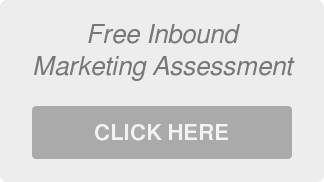 The marketing landscape is changing at a breakneck pace, and 2025 promises to bring even more disruption and innovation to the way businesses communicate with each other. Here are the top B2B marketing trends shaping 2025 and how you can leverage these changes to strengthen your strategies, build stronger customer relationships, and achieve measurable growth.
The marketing landscape is changing at a breakneck pace, and 2025 promises to bring even more disruption and innovation to the way businesses communicate with each other. Here are the top B2B marketing trends shaping 2025 and how you can leverage these changes to strengthen your strategies, build stronger customer relationships, and achieve measurable growth.
Hyper-Personalization At Scale
Gone are the days of one-size-fits-all email blasts. Today’s B2B buyers expect personalized experiences tailored to their unique challenges and goals. With over 72% of B2B consumers stating they only engage with marketing efforts that are customized to their specific needs, personalization is no longer optional. How to Implement Hyper-Personalization:
-
Leverage AI and Data Analytics: Use AI-driven platforms to analyze buyer behavior and preferences. Tools like Salesforce Einstein and Adobe Sensei can help predict your customers’ needs and personalize their experiences in real-time.
-
Dynamic Content Marketing: Utilize dynamic content that adjusts automatically based on the user’s industry, role, or stage in the buyer’s journey.
Increased Reliance On AI-Powered Marketing Tools
AI is no longer futuristic—it has become essential for B2B marketers. From predictive analytics to automated content generation, AI technologies are streamlining workflows and driving better results. AI Use Cases in B2B Marketing:
-
Chatbots and Virtual Assistants: Platforms like Drift and HubSpot are automating customer service and providing faster responses.
-
Predictive Lead Scoring: AI can prioritize the leads most likely to convert, helping sales teams focus their efforts.
-
Intelligent Content Creation: AI tools like Jasper are enabling marketers to produce engaging blogs, emails, and even video scripts at scale.
Sustainability Takes Center Stage
Sustainability is no longer just a buzzword—it’s a demand from buyers and stakeholders alike. An increased emphasis on eco-friendly practices has made sustainability a major deciding factor in B2B purchasing decisions. Research indicates that over 85% of businesses prefer to work with eco-conscious suppliers and service providers. How to Showcase Sustainability:
-
Use Content Marketing: Share your sustainability stories through case studies, videos, and blog posts.
-
Certifications and Transparency: Highlight any eco-certifications your company has earned and provide transparent information about your supply chain.
-
Green Partnerships: Align with like-minded green brands to build trust among your target audience.
The Rise Of B2B Influencer Marketing
Influencer marketing isn’t just for B2C anymore. Industry leaders and niche experts are now playing key roles in B2B decision-making processes. Seeing trusted professionals endorse a product or service can significantly impact purchase decisions. Effective Strategies for B2B Influencer Marketing:
-
Collaborate with Niche Influencers: Identify thought leaders within your industry and engage them to create authentic content for your brand.
-
Webinars and Live Events: Partner with influencers to host virtual webinars or live panels on industry insights.
-
Testimonial Campaigns: Influencers’ testimonials can boost credibility and trust for your brand.
Account-Based Marketing (ABM) Continues To Dominate
Account-Based Marketing (ABM) has been growing, and its momentum isn’t slowing down in 2025. Unlike traditional strategies that target a broad audience, ABM focuses on individual high-value accounts, delivering highly tailored engagement at every stage of the sales process. How to Excel at ABM in 2025:
-
Advance Personalization: Deploy targeted ads, emails, and content that address the specific pain points of key accounts.
-
Collaboration Between Teams: Align sales and marketing teams to ensure a coherent and seamless approach.
-
Invest in ABM Technologies: Tools like Demandbase and Terminus can help you scale ABM efforts while ensuring precise targeting.
Data Privacy And Compliance As Priorities
With the ongoing introduction of stricter privacy regulations worldwide, including updates to GDPR and California's CCPA, protecting user data is critical. B2B marketers need to adopt practices that comply with these regulations while continuing to deliver effective campaigns. Adjusting to Privacy Regulations:
-
Consent-Based Marketing: Use opt-in strategies for email subscriptions and cookie tracking.
-
Zero- and First-Party Data: Focus on collecting data directly through customer interactions rather than buying it from third parties.
-
Transparent Privacy Policies: Make your privacy terms visible and easy to understand.
The future of B2B marketing is exciting, filled with opportunities to grow and innovate. By staying informed and integrating these trends into your strategies, your organization can bolster its reach and influence in the market.





